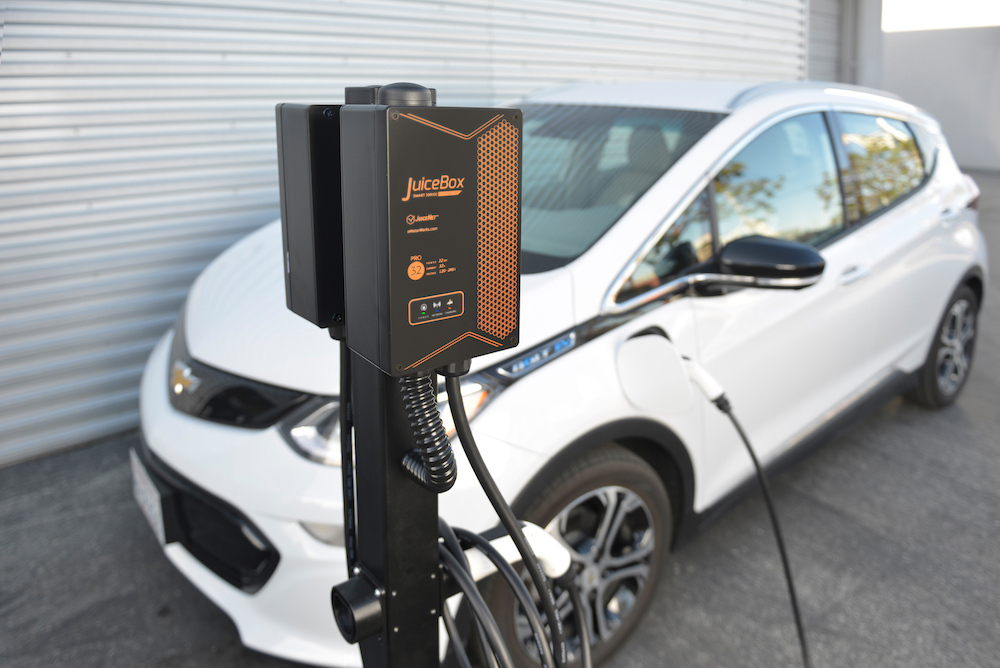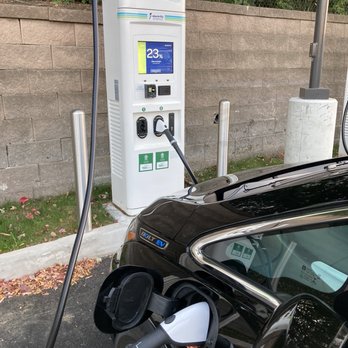
If you are interested in purchasing an electric car (EV), then the federal tax credit is for you. This tax credit is available up to $7500 and will remain in effect until 2032. In addition, this program has expanded its eligibility criteria to include other types of vehicles. A tax credit can be claimed for the purchase or used EVs.
This credit is a fantastic incentive for consumers. But there are a few things that you need to know. The tax credit is completely refundable but there are some restrictions. It is based on the vehicle identification number (VIN) and you'll need to report it on your tax return when it's time to reconcile it. If you earn more than the maximum credit amount, you may not be eligible for the credit. Depending on your state, you may be eligible for additional incentives or rebates, such as the California Clean Fuel Reward program.
You can either claim the EV tax credit on a car you've already bought or buy a new one. You can use the IRS's handy tool to determine if you are eligible. You can also find more information on a few other websites if you aren't sure. Apart from the official websites, you can search the Alternative Fuels Data Center and find a list EV models that are eligible.

As part of the Inflation Reduction Act, the EV car tax credit was reformed. There was a 200,000 unit limit on the old credit. The cap was lifted after the manufacturer had sold 200,000 eligible EVs. As a result, many clean vehicles are ineligible for this credit.
Inflation Reduction Act introduced several changes to the federal EV Tax Credit, including a $4,000 credit in favor of used EVs. However, this credit will only be available to a very limited number of EVs. Many restrictions have been placed on EVs by the government. Clean Vehicles Act contains a strong Greenhouse Gas Reduction Fund. It allocates $1 billion to the states, Indian tribes, and non-profit school transport associations.
The Clean Vehicles Act also included new rules for North American final assembly and battery components. These regulations may have an impact on General Motors and Tesla. Some have indicated that the will challenge these rules. However, it's impossible to say with certainty until the rules can be formally written.
There are many other changes in the Inflation Reduction Act, including expanding the tax credit for plug–in hybrids. This is good news, especially for those who are planning to purchase a PHEV. A rebate can be applied to 100% of the cost of your vehicle. However, the best way is to find a qualified dealer to obtain a rebate.

You can see that this new EV programme tries to address major issues in the former one. It ensures that the materials used in your vehicle are sourced from countries that are free trade partners with the U.S. It also features a few other cool things.
FAQ
What kind of car mechanic jobs exists?
Three main areas of employment are available for car mechanics:
-
Automotive repair shops
-
Dealerships
-
Independent garages
Automotive repair shops
This is the place most people begin to consider becoming mechanics. In fact, it's probably the easiest way to get started. Either work for someone else's shop or you can start your own.
If you decide to work at a shop, you'll need to apply to join a union. Once you're accepted into the union, you'll receive training from the union.
You'll be ready for work once you have completed the training.
If you plan to open your own garage you will need to register with government. After you have registered, you will need to meet certain standards.
When you've registered, you'll be given a license to operate your garage.
Your license allows you to sell spare parts and make minor repairs. It won't allow you to fix major engine problems.
Apart from selling spare parts, customers will also expect you to provide guidance and advice.
Dealership jobs
Most dealerships employ mechanics that specialize in one aspect of the vehicle. For instance, they may only be qualified to fix brakes or change tires.
However, dealerships may also employ general mechanics who are able to handle all aspects related to car repairs.
These positions often require applicants to undergo specific training before being allowed to work. This means employers can choose which candidates are best suited for their role.
Some dealerships recruit students right out of school. These graduates already have a basic understanding of mechanical engineering, so they are able to learn all about cars.
Independent garages
Independent garages aren't associated with any particular dealership. Instead, they focus on high-quality customer service.
Independent garages have the ability to afford higher wages, as they aren’t associated with any one company. Because these jobs don't have to be associated with any company, they can generally offer better wages than dealerships.
Independent garages don't necessarily make for better work environments. Many business owners prefer to manage their own businesses rather than delegating responsibility to others.
You may find yourself working for long hours and not having control over the day.
Additionally, you should expect to earn lower wages if employed by a dealership.
The good news is that you can easily switch between different kinds of jobs. It is possible to switch between different types of jobs if your current employer would prefer you to work at a dealer.
Alternatively, if you'd like to work at an independent garage, then you could try applying directly to the owner of the garage.
Finding a new job is not always easy. You can earn more depending on many other factors.
It could be the type and cost of labor you use to repair your vehicle.
What information do I need about car mechanics
To be an auto mechanic, you don't have to know much about cars. All you need to know is how to fix things. Most people start by fixing things like changing tires or fitting brake pads.
You'll need the ability to read and understand diagrams and to follow simple rules of good practise. Also, you will need to know how to tell if parts require replacing or repair.
It's important to remember that you shouldn't attempt to repair vehicles without having received proper training and guidance. This is especially true if you deal with expensive components such as engines or transmissions.
Although you won't have to know much about automobiles, you must be familiar with the basics of mechanical engineering as well as physics. This involves understanding how engines work and how brakes work.
You should also be ready to handle all kinds of situations. For instance, you might find yourself in charge of a vehicle that has been in a serious accident. Also, you'll need to be familiar with dealing with accidents or breakdowns.
Finally, you must be willing to learn new skills quickly. In order to be able diagnose and fix problems, you will also need to know how to do simple maintenance tasks such tightening bolts.
What are the requirements of an auto technician?
High school graduation or GED is required with excellent grades in English and math. Also, you must be able read and write. After passing a written test, you will need to complete a series of practical tests before you are allowed to begin working.
Are you looking for a career as an automotive mechanic?
For those who are passionate about excellence, automotive is a rewarding industry. It is important to work hard and learn as much from others as you can in order to succeed in this industry.
You'll need to have excellent communication skills because you'll spend most of your time talking to customers and other employees. It is important that you are willing to travel, work long hours and be able to commute.
Take classes at community colleges or universities if you're interested to work in automotive. Many schools offer programs specific to students interested in sales, auto repair, or customer service.
Mechanical engineering should be your first choice for a degree. You can earn a bachelor's in as little four years.
Many employers will also hire graduates straight from school. So, it is wise to begin searching for employment while you are still able to study part time.
After your education is complete, you will probably need some training in order to become an automotive technician.
This means you'll need pass exams like the Automotive Services Excellence (ASE), certification exam. This exam covers topics such as engine maintenance, brakes and suspension.
Once you have passed the ASE Test, you are eligible to apply for a National Institute for Automotive Service Excellence License.
A license permits you to repair private vehicles. You will be compensated based on how many services you performed.
Not all states require licensing. If you intend to work in another state, however, you will need a license.
Some states don't issue licenses until after completing a certain amount of training. If this is you, you may need another option.
Is it hard being a mechanic apprentice
It's not easy, however, it is very rewarding and offers many opportunities for growth.
You need to have patience and perseverance. You must also know how to fix cars, trucks, and motorcycles.
Customers and loved ones can place a lot of pressure on you. But you should never feel pressured into making decisions you aren't comfortable with.
If you like fixing cars, this could be a great career option. This is a job that allows you to earn a decent income and grow your business.
Perhaps you prefer a different route. This is where you might be interested in becoming a technician.
This is where you use your technical skills to support other workers. You might be able to assist technicians in troubleshooting problems or teach them new techniques.
Another option is to become an advisor in service. As a service advisor, you will provide assistance and advice to customers as they bring their car to a garage.
The decision you make will depend on what you are looking for. There are many choices available and you can choose what suits you best.
What is the difference between an automotive technician and a mechanic?
These two jobs are very similar but not identical. A mechanic repairs cars and an automotive technician performs maintenance.
A mechanic must have good manual dexterity and be able to perform simple tasks quickly. They must also be able to diagnose problems accurately and repair them effectively.
A technician in automotive is more technical than a mechanic. They need to be able use tools such drills and wrenches, and read blueprints.
They must also be able to carry out complex procedures safely. They must be familiar with all types of electrical and engine systems.
They must also understand the interplay of different parts.
The result is that a mechanic often earns less than an auto technician. Both careers have many options.
Is it difficult to find a job as a mechanic in the automotive industry?
It can be done. Many garages advertise their vacancies online, and many people apply just because they think it might be fun. To get your foot in front of the door, try applying for a few positions to see if any accept student applications. Alternatively, you could ask friends and family if they know anyone who works in the industry. They may be happy and willing to recommend someone.
Statistics
- There were 749,900 jobs available for automotive service technicians and mechanics in 2016, which is expected to grow by six percent through 2026. (jobhero.com)
- The U.S. Bureau of Labor Statistics (BLS) reports that the job outlook for automotive service technicians and mechanics is expected to decline by 4% from 2019 to 2029. (indeed.com)
- According to the BLS, the median annual salary for automotive service technicians and mechanics in the United States was $44,050 in May 2020. (uti.edu)
External Links
How To
How to be an Automotive Technician
A technician who works on vehicles is an automotive technician. He/she is employed at automobile dealerships, garages, service centres, and auto shops. He/she repairs cars, trucks, motorbikes and snowmobiles for customers. An automotive technician must know how to diagnose problems and perform repairs efficiently, safely, accurately, quickly, and correctly.
To become an automotive technician, a person must first earn an associate's degree from a vocational college. After completing this program, he/she must pass the National Institute for Automotive Service Excellence (ASE) certification exam. ASE stands in for American Society of Mechanical Engineers. There are two sections to the ASE certification test. The first section tests your mechanical skills, while the second tests your practical knowledge. You must attend one of the authorized testing sites to take the test. You can find these locations online or through your local automobile dealer.
After passing the exam, a candidate must take a state exam before being licensed as an automobile technician. It varies depending on the location of the applicant. For example, some states require candidates to attend a training course, while others allow them to study independently. Some states permit technicians to work immediately after they are granted their license. Others require them to wait at least six consecutive months before they can be licensed.
Apply to your local dealership to become an automotive technician. Most new employees begin as apprentices once they are hired. Apprenticeship programs last about three years. This is when a student can learn how to do basic repairs such as changing oil, adjusting brakes and replacing tires. Some students are taught how to repair engines and replace transmission fluids. Schools offer classes during business hours. Some schools also offer evening classes when needed.
Once a student is done with his/her apprenticeship he/she can become a master journeyman. Journeymen usually spend four to five year learning how to install major systems like transmissions, differentials steering gear, suspensions, drive shafts, and steering gear. Journeymen also learn to fix complicated problems, such as rebuilding engines or troubleshooting electric components. Because they have a good understanding of the job and what customers expect, many employers prefer to hire journeymen.
Once a candidate passes the required exams and is granted a license, they might consider opening their own shop. According to the Bureau of Labor Statistics, nearly 1.7 million automotive mechanic jobs were available in 2010. The Bureau of Labor Statistics predicted that this number would rise by 18% from 2009 to 2020. Candidates who decide to open their own business should be prepared to invest thousands in equipment and supplies.
There are many factors that affect the salary of an automotive technician, such as where they live, their education and experience. On average, a jobless person could expect to earn $20,000 annually. Someone who has only a highschool diploma could earn around 21,000 dollars per year. An associate's degree earns approximately $24,000 annually. Technicians with bachelor's degrees earn approximately $27,000 per year. Masters' degree holders earn around $32,000 per annum. Salaries are increasing so that a professional earning less than $30,000 could expect to make $40,000 in a few years.